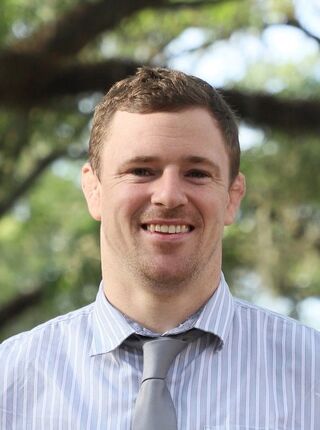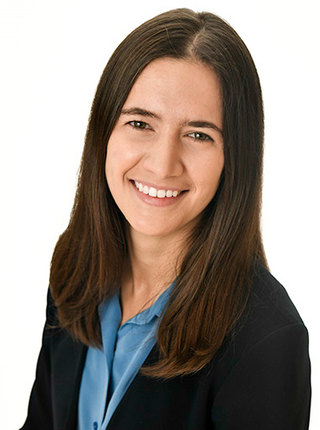- Home
- Training Opportunities
- Cardiovascular T32
Training Program Overview
Since 1996, the Cardiovascular T32 (funded by NHLBI - T32HL007843) has been instrumental in training MD, PhD and MD/PhD fellows for careers in cardiovascular research. Our training program incorporates the guiding principle that innovative biomedical research requires teams of investigators with diverse scientific backgrounds, areas of expertise, and perspectives. Centered within the Penn Cardiovascular Institute and under the leadership of Drs. Thomas Cappola and Daniel P. Kelly, the program provides trainees with an environment focused on strong mentorship, rigorous scientific training, and exposure to cross-disciplinary interactions. The core of our curriculum is a supervised research mentorship, which is supplemented with didactic classwork, lectures, seminars, skills classes, and Master’s level research training individualized to each trainee’s path. The ultimate goal of the program is to prepare the trainee for a career that involves cardiovascular research.
Trainees follow one of three tracks:
- Basic Research for trainees preparing for careers focused predominantly in basic cardiovascular science using laboratory approaches (Co-directors: Rajan Jain and Mark Kahn)
- Clinical and Translational prepares for careers in research at the interface of laboratory science and clinical investigation (Co-directors: Sharlene Day and Julio Chirinos)
- Outcomes/ Health Services prepares trainees for research careers focus on healthcare policy and delivery in the population at large. (Co-directors: Nimesh Desai and Peter Groeneveld)
Trainees may also pursue Master’s Degrees through the Biomedical Graduate Studies Program in Translational Research (MSTR), Health Policy (MSHP), and Clinical Epidemiology (MSCE).

Program Requirements and Objectives
- 2 - 3 year mentored training period
- Participation in an in-depth research project
- Mandatory training in Rigor and Reproducibility, and Responsible Conduct of Research, and skills training in areas such as grantsmanship, manuscript writing, and seminar presentation
- Research conference attendance (e.g. CVI Seminar and Division of Cardiovascular Medicine Grand Rounds)
- Participation in CVI Trainee Research in Progress (CVI TRIPS) and other trainee-related talks
- Monthly trainee and mentor lunches
Mentors
A particular strength of our training program is the quality and diversity of faculty. Mentors have primary academic appointments in an array of clinical and basic science departments including the Departments of Medicine; Surgery; Biostatistics, Epidemiology, and Informatics; Emergency Medicine; Genetics; Cell and Developmental Biology; Systems Pharmacology and Therapeutics; Physiology; and Engineering. Dual mentorship is also possible for cross-disciplinary training.
Current Mentors:
|
Arany, Zoltan |
Jain, Rajan |
Momin, Noor |
|
Basil, Maria |
Kahn, Mark |
McCormack, Shana |
|
Cappola, Thomas |
Kelly, Daniel P. |
Morrisey, Edward |
|
Chirinos, Julio |
Khatana, Sameed |
Musunuru, Kiran |
|
Courtright, Katherine |
Ky, Bonnie |
Nazarian, Saman |
|
Damrauer, Scott |
Lakadamyali, Melike |
Pouch, Alison |
|
Day, Sharlene |
Landstrom, Andrew |
Prosser, Benjamin |
|
Desai, Nimesh |
Lazar, Mitchell A |
Rader, Daniel |
|
Fanaroff, Alexander |
Levin, Michael |
Speck, Nancy |
|
Groeneveld, Peter |
Lewey, Jennifer |
Vidula, Himabindu |
|
Guerraty, Marie |
Margulies, Kenneth B. |
Wherry, E. John |
|
|
|
Witschey, Walter |
Trainees and Eligibility
The training grant currently maintains seven postdoctoral training slots, which support a mix of MD, PhD, and MD/PhD trainees, many of whom obtain advanced degrees. We encourage applicants from a variety of experiences and backgrounds.
Candidates must have earned a Ph.D. and/or M.D. at the time of application and must be a United States citizen or have resident alien status. Please note that acceptance of a postdoctoral trainee slot implies agreement to all components of program and the NIH payback agreement. These include periodic meetings with program leadership, submission of written progress reports, scientific discussions with other training grantees, training in the ethical conduct of research, and, depending on the background of the fellow, didactic coursework. The NIH requires a minimum two-year commitment. If the trainee does not complete two years, they will be required to payback the funding received to the NIH.
Applications are now open for July 1, 2026 start date. For more information and instructions on applying to the program, please contact emily.romick@pennmedicine.upenn.edu.
Current Trainees
Trainee Outcomes
Over the past 15 years, of the 47 trainees who completed the program, 45 went on in their initial positions to pursue further training, research-intensive, or research-related careers. Overall, 90% remain in research careers, hold university appointments, or leadership roles in the biomedical industry.

Contact
Emily Romick, T32 Administrative Coordinator
215-573-4717









